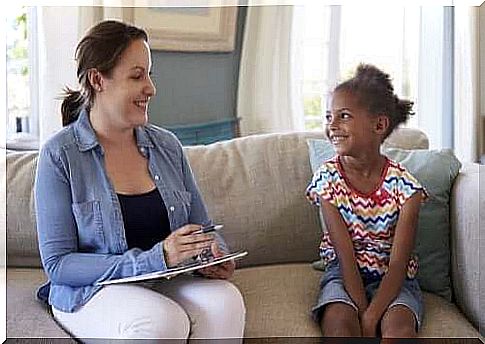When To Consult A Child Psychologist? – Being Parents

Paternity and motherhood are not accompanied by an instruction manual. Even though we try to do our best, sometimes we can feel overwhelmed and need help. Consulting a child psychiatrist or child psychologist can give rise to doubts and fears. Yet this is often the right decision.
What is normal?
Almost all parents, at some point, wonder if their child’s behavior is normal and fleeting or if they should be worried. Before despairing, it is important to know that in their evolutionary process children go through different stages with characteristic behaviors that help them to develop as people.
For example, around the age of two, there is a phase of negativity and tantrums which is perfectly normal. It is also common for children up to the age of seven to have difficulty maintaining their concentration or regulating their behavior if they are aroused.
That is, certain behaviors or fears may be quite appropriate at a certain age and may cease to be as the child grows. On the other hand, the child’s personality also plays a decisive role, so that an introverted child will enjoy loneliness more, while a more restless child will need more outside stimuli.

Before cataloging a behavior as problematic, it is necessary to elucidate whether it is part of the stage of development that our child is going through or if it is part of his personality.
It is also possible that sometimes the intervention is not centered on the child, but on his parents. We may be too demanding or too protective of our child and may not have a realistic view of childhood. In this case, a psychological intervention dedicated to the guidance of the parents can resolve the situation.
When to consult a child psychologist?
Unfortunately, the decision to consult a child psychologist is still taboo. Some parents may think this is not really necessary or see it as a sign of weakness.
Seeking professional help does not mean that you are a bad parent or that you have done something wrong. On the contrary, it only shows that you want to give your children the best education and the best childhood.
However, there are certain situations that can arise over time. When there is a change in the child’s life, such as a divorce or a change of school, it may only take a while to adjust to the new situation. However, it is very practical to be vigilant in case this adaptation does not take place.
Likewise, if we deem it necessary, it may be appropriate to consult a child psychologist to help the child to take this step. Sometimes prevention is better than cure, and relying on this support can prevent circumstances from negatively affecting or overwhelming the child.
On the other hand, it must be taken into account that there are situations in which it is better to act as quickly as possible. Otherwise, the symptoms can worsen or become chronic and, moreover, the child will lose part of his childhood until we find a solution.

Keys to keep in mind
The main parameters to take into account when deciding to consult a child psychologist are as follows:
- Behaviors that go beyond normal. Either because our child exhibits very different behaviors from the rest of the little ones his age, or because his behavior changes radically from day to day. For this reason, it is important to know both the stages of evolution and the personality of our child.
- The time factor. If the abnormal behavior or abnormal mood persists for several months, we should start thinking about seeing a professional. This may mean that the child is not able to cope on his own and needs help.
- The influence on daily life. If a behavior, fear or emotional state significantly affects the child’s daily life and well-being, help should be sought. Even though little time has passed, if the affectation that is occurring is large, we should not wait.
- Unexplained physical symptoms. If the child begins to experience frequent headaches, stomach aches, or skin problems without medical justification, we may end up with somatizations of some emotional problem.









